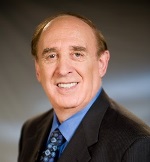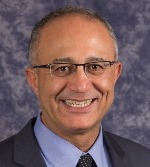ADVISORY ARTICLE
By Harold Kerzner, Ph.D. and Al Zeitoun, Ph.D.
Florida and Maryland, USA
INTRODUCTION _______________________________________________________
Perhaps the biggest challenge facing project managers is being assigned a project that is based upon unrealistic expectations. The unreasonable expectations are most frequently based upon the deliverables requested but could also be based upon time allowed, funding available, and skill levels of the workers to be assigned.
It is not uncommon for many projects to begin based upon just an idea that has not been fully evaluated for development risks, requires innovation and creativity, and contains many uncertainties in the assumptions. Project teams that are experienced in managing R&D projects often live in a world of unrealistic expectations and learn how to cope. For other project managers, unrealistic expectations can create serious stress and headaches resulting in poor leadership and erroneous decision-making.
As shown in Figure 1, a possible dilemma could be created when there is a number of great ideas that could be driving the possible solutions for the reason a project exists in the first place. There could be also a number of ideas driving the views and expectations of project stakeholders for what good looks like and what success means. Project managers should have a compass and set of guides to help them navigate through the possible complexities that this expectations management topic creates.
Having a good approach to communication, taking time in the front end of a project, and being able to attract and sustain strong project sponsorship, could all help project managers minimize their possible expectations stresses. It is also our hope that the project manager could seize this challenge as an opportunity to enhance timely critical project dialogues and implement the practices project risk management to the benefit of all involved in setting and managing the project expectations lifecycle.
(https://pixabay.com/illustrations/manager-engineer-work-business-man-2148223/ )
Figure 1. Ideas and Expectations
SOURCES OF UNREALISTIC EXPECTATIONS ______________________________
The most common cause of unrealistic expectations occurs on internal projects. Project initiation most often occurs during the project’s fuzzy front end (FFE) where executives and managers meet to decide what projects to undertake and the accompanying priority of the projects.
Participants in the FFE meeting often have never managed projects and may be quite unfamiliar with current project management practices. The FFE committee may select projects that are deemed necessary for the business to grow and perhaps unintentionally establish unrealistic expectations in the hope that the project team can achieve success
More…
To read entire article, click here
How to cite this article: Kerzner, H., Zeitoun, A. (2025). Managing Unrealistic Project Expectations, PM World Journal, Vol. XIV, Issue V, May. Available online at https://pmworldlibrary.net/wp-content/uploads/2025/05/pmwj152-May2025-Kerzner-Zeitoun-Managing-Unrealistic-Project-Expectations.pdf
About the Authors

Harold Kerzner, Ph.D., MS, M.B.A
Senior Executive Director for Project Management
International Institute of Learning
New York & Florida, USA
![]()
Dr. Harold Kerzner is Senior Executive Director for Project Management for the International Institute for Learning (IIL). He has an MS and Ph.D. in Aeronautical and Astronautical Engineering from the University of Illinois and an MBA from Utah State University. He is a prior Air Force Officer and spent several years at Morton-Thiokol in project management. He taught engineering at the University of Illinois and business administration at Utah State University, and for 38 years taught project management at Baldwin-Wallace University. He has published or presented numerous engineering and business papers and has had published more than 60 college textbooks/workbooks on project management, including later editions. Some of his books are (1) Project Management: A Systems Approach to Planning, Scheduling and Controlling; (2) Project Management Metrics, KPIs and Dashboards, (3) Project Management Case Studies, (4) Project Management Best Practices: Achieving Global Excellence, (5) PM 2.0: The Future of Project Management, (6) Using the Project Management Maturity Model, and (7) Innovation Project Management.
He is a charter member of the Northeast Ohio PMI Chapter.
Dr. Kerzner has traveled around the world conducting project management lectures for PMI Chapters and companies in Japan, China, Russia, Brazil, Singapore, Korea, South Africa, Canada, Ireland, Germany, Spain, Belgium, Poland, Croatia, Mexico, Trinidad, Barbados, The Netherlands, Sweden, Finland, Venezuela, Columbia, United Arab Emirates, France, Italy, England, and Switzerland. He delivered a keynote speech at a PMI Global Congress on the future of project management.
His recognitions include:
-
- The University of Illinois granted Dr. Kerzner a Distinguished Recent Alumni Award in 1981 for his contributions to the field of project management.
- Utah State University provided Dr. Kerzner with the 1998 Distinguished Service Award for his contributions to the field of project management.
- The Northeast Ohio Chapter of the Project Management Institute gives out the Kerzner Award once a year to one project manager in Northeast Ohio that has demonstrated excellence in project management. They also give out a second Kerzner Award for project of the year in Northeast Ohio.
- The Project Management Institute (National Organization) in cooperation with IIL has initiated the Kerzner International Project Manager of the Year Award given to one project manager yearly anywhere in the world that demonstrated excellence in project management.
- The Project Management Institute also gives out four scholarships each year in Dr. Kerzner’s name for graduate studies in project management.
- Baldwin-Wallace University has instituted the Kerzner Distinguished Lecturer Series in project management.
- The Italian Institute of Project Management presented Dr. Kerzner with the 2019 International ISIPM Award for his contributions to the field of project management.
Dr. Harold Kerzner can be contacted at hkerzner@hotmail.com

Dr. Al Zeitoun, PgMP, PMI Fellow
Strategy Advisor & Global Future of Work Executive
Maryland USA
![]()
Dr. Al Zeitoun is a Future of Work, business optimization, and operational performance excellence thought leader with global experiences in strategy execution. His experiences encompass leading organizations; delivering their Enterprise Digital and Business Transformation; guiding fitting frameworks implementations; and using his empathy, engineering insights, and collaboration strengths to successfully envision new business models and execute complex missions across diverse cultures globally.
In his recent role with Siemens, he was a Senior Director of Strategy responsible for driving the global program management practices, Master Plan governance, and enabling the Strategy Transformation processes and priorities.
In his position, as the Executive Director for Emirates Nuclear Energy Corporation, Abu Dhabi, UAE, he was responsible for creating the strategy execution framework, achieving transformation benefits, governance excellence, and creating the data analytics discipline necessary for delivering on the $40B complex country energy mission roadmap.
At the McLean, USA HQ of Booz Allen Hamilton, Dr. Zeitoun strategically envisioned and customized digitally enabled EPMO advisory, mapped playbooks, and capability development for clients’ Billions of Dollars strategic initiatives. Furthermore, he led the firm’s Middle East North Africa Portfolio Management and Agile Governance Solutions.
With the International Institute of Learning, Dr. Zeitoun played a senior leader and global trainer and coach. He was instrumental in driving its global expansions, thought leadership, and operational excellence methodology to sense and shape dynamic ways of working across organizations worldwide. He speaks English, Arabic, and German and enjoys good food, travel, and volunteering. Dr. Al Zeitoun can be contacted at zeitounstrategy@gmail.com









